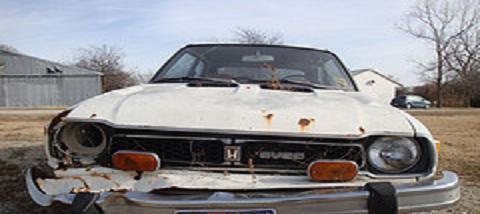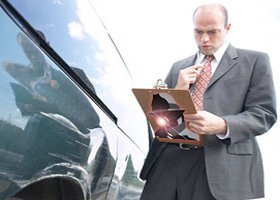|
Your Trade In Car Values Defined
You must know wholesale car values when you are shopping for a new or used vehicle, you have a trade and you want a fair value for it. That is to say what you can expect the dealer to pay for your car. This is always a very sensitive topic. You have looked at the classified ads to see what your vehicles worth, right? Most of us start there. This is what is known as the retail value (what dollar amount is a reasonable expectation if you sold your vehicle yourself).Are the two values different, you may be wondering. The answer is yes, they are different and here are a few reasons why. When you are trading in the dealer looks at: 1.The Interior and Exterior Condition (rips or stains in the upholstery, faded paint) 2.Mechanical Issues (engine running rough, lack of service, transmission slipping) These will add to a dealers reconditioning expenses and therefore lower your trades worth 3.Mileage (Honda allows for an average of 24000kms per year others are as low as 15000kms per model year) Higher mileage then the average means less money for your trade 4.Resale Expenses (the costs incurred by a dealer to resell your car i.e. advertising, interest on the loan to purchase your car, fixed operating expenses)
With that being said your vehicles value will always be lower when you trade it in. If you choose to sell your vehicle yourself you may have to spend the difference between the wholesale and retail price in order to satisfy the buyer of your vehicle. Remember everyone wants a used car to look like its new. Unfortunately though, if you do decide to go the hassle free trade in route, there are some dealers out there that will try to not pay you what your car is truly worth. That is why throughout this site I have included educational tools and as much useful advice and assistance as I can to make sure you have an enjoyable experience buying your new car without the worries of the unknown.
Most trade values are given by using three commonly employed information sources. The first is what some dealers call the black book or kelly blue book. These tools give a range from high to low for dealers to base their appraisals on. Others will also use wholesale auction guides which will tell them from week to week what various vehicles are selling for at the auto auctions.The third option that is commonly used is sourcing or selling your vehicle to other dealer(s)/wholesalers. These individuals make a deal to purchase your vehicle for "X" amount from your dealership when you pick up your new vehicle. The question that most people have is what is "X" and how do I change it to "M"(for more). Click this link to find out car values for your trade and to have more information on how to increase car values inexpensively click here. These amounts are to be used only as a guide to get a fair trade value and are never carved in stone. I have utilized a couple sources to obtain fair market value for your trade but ultimately it is to your dealers discretion what they are willing to pay. You may also wonder "what if my vehicle is an older car?". Today's standards state that a vehicles life expectancy is now ten years. Any vehicle older than that is appraised on a case by case basis. We will also give you free appraisals of your older vehicles approximate value if this applies to you.
|






